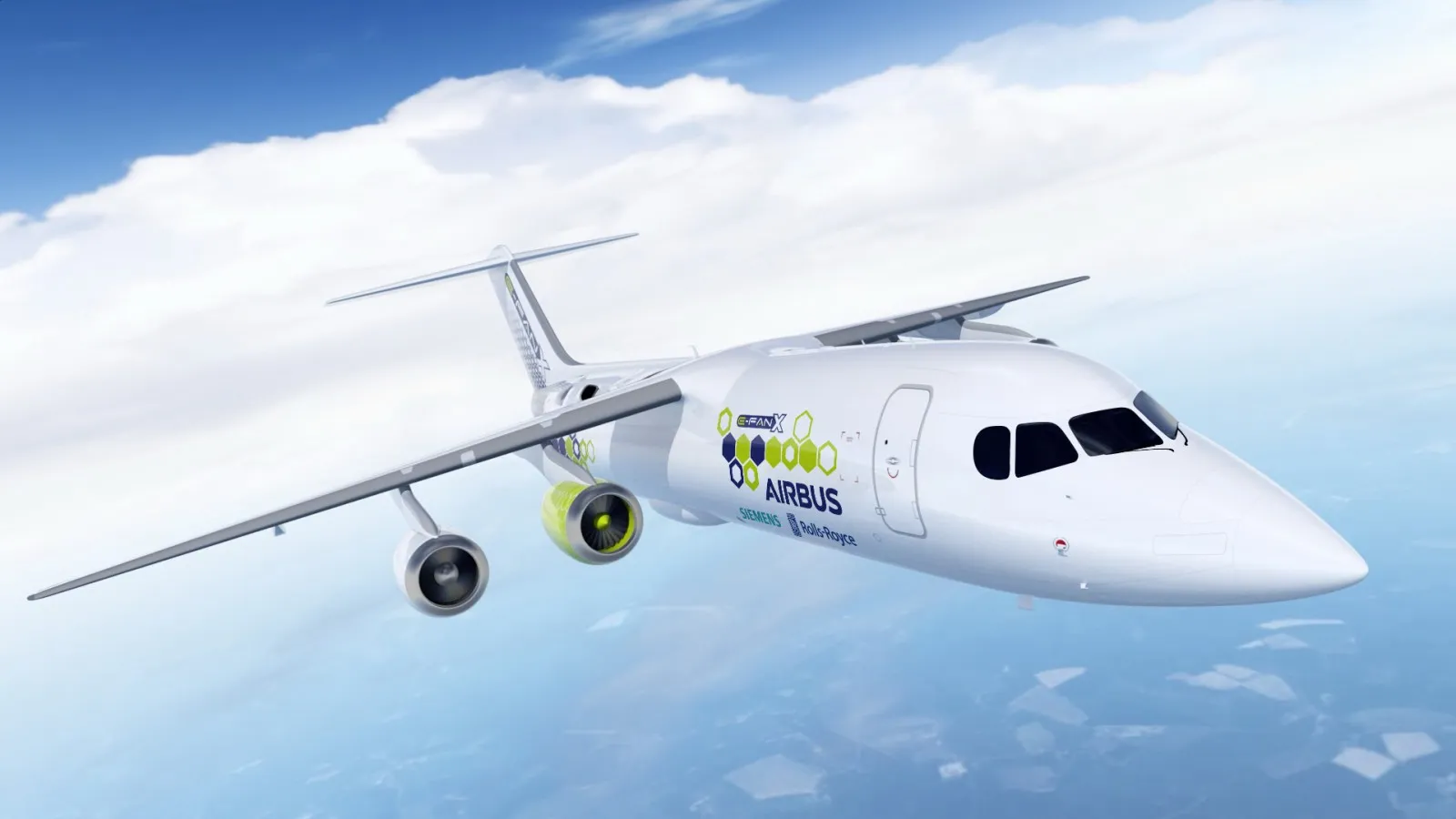
Airbus partnership aims for hybrid-electric airliner
Nov 28, 2017

Airbus is collaborating with various industry partners to develop a hybrid-electric airliner, focusing on sustainable aviation solutions. This initiative aims to reduce carbon emissions and fuel consumption in the aerospace sector by integrating advanced hybrid propulsion systems. The project leverages cutting-edge technologies and expertise from both the aviation and energy sectors to create efficient aircraft that meet future environmental standards. By pursuing this innovative approach, Airbus seeks to lead the way in transforming air travel, making it greener and more efficient while addressing the industry's pressing challenges related to climate change.
Airbus and the Future of Aviation: A Hybrid-Electric Airliner
Airbus, a leader in aerospace innovation, is making significant strides towards a more sustainable future in aviation with its ambitious plans for a hybrid-electric airliner. This partnership aims to reduce carbon emissions and enhance fuel efficiency, aligning with global initiatives to combat climate change. The push for greener technology is not just beneficial for the environment but also presents economic opportunities for airlines and manufacturers alike.
The Vision Behind Hybrid-Electric Aircraft
The vision for hybrid-electric airliners is rooted in the need for sustainable aviation solutions. As air travel continues to grow, so does its environmental impact. Airbus recognizes this challenge and is committed to developing aircraft that harness both traditional fuel and electric power. The hybrid-electric model is designed to optimize performance while minimizing emissions, making air travel more ecologically friendly.
Key Features of Hybrid-Electric Airliners
Hybrid-electric airliners are set to revolutionize the aviation industry with several innovative features:
| Feature | Description |
|---|---|
| Reduced Emissions | Hybrid technology significantly lowers carbon emissions compared to conventional aircraft. |
| Fuel Efficiency | The combination of electric and traditional engines maximizes fuel usage, reducing operating costs. |
| Noise Reduction | Electric engines operate more quietly than their gas counterparts, leading to less noise pollution. |
| Operational Flexibility | Hybrid systems allow for varied flight profiles, enhancing performance in different flying conditions. |
Partnerships Driving Innovation
To achieve its goals, Airbus is collaborating with various stakeholders, including technology firms and research institutions. These partnerships are crucial for advancing hybrid-electric technology and ensuring it meets the high safety and efficiency standards required in aviation.
One key aspect of this collaboration is the sharing of expertise. By leveraging the strengths of different organizations, Airbus can accelerate the development process. For instance, partnerships with battery technology companies focus on creating lightweight, high-capacity batteries essential for hybrid systems. Additionally, collaborations with universities and research institutes are vital for exploring new aerodynamic designs and propulsion systems.
Challenges on the Path to Hybrid-Electric Aviation
While the potential of hybrid-electric airliners is immense, several challenges remain. One of the primary hurdles is the current state of battery technology. Although advancements have been made, the energy density of batteries still lags behind traditional fuels, which limits the range and payload capacity of hybrid aircraft. To address this, ongoing research is essential to develop more efficient and powerful battery systems.
Another challenge is regulatory approval. The aviation industry is one of the most heavily regulated sectors, and introducing new technologies requires rigorous testing and certification processes. Airbus and its partners must navigate these regulations to bring hybrid-electric aircraft to market.
The Market Potential for Hybrid-Electric Aircraft
The market potential for hybrid-electric airliners is significant. Airlines are increasingly seeking sustainable solutions to meet consumer demand for greener travel options. As environmental concerns shape travel choices, airlines that adopt hybrid technology may gain a competitive edge.
According to industry forecasts, the demand for sustainable aviation solutions is expected to grow substantially over the next decade. The hybrid-electric segment is poised to capture a considerable share of this market, particularly for regional and short-haul flights where electric propulsion can be most effective.
Conclusion: The Future of Air Travel
Airbus's commitment to developing hybrid-electric airliners marks a transformative step towards sustainable aviation. Through strategic partnerships and innovative technology, the aerospace giant aims to redefine air travel in a way that is both environmentally responsible and economically viable. As the industry moves forward, the collaboration between various stakeholders will be crucial in overcoming challenges and realizing the full potential of hybrid-electric technology.
In conclusion, the journey towards a greener aviation future is underway, and the partnership between Airbus and its collaborators is at the forefront of this exciting transformation. With ongoing advancements and a focus on sustainability, hybrid-electric airliners could soon become a commonplace sight in our skies, representing a new era in air travel that prioritizes the planet.
Related Articles

Explore Thailand: The Best Islands to Visit for Paradise, Adventure, and Relaxation

The Ultimate Guide to the Best Islands in Thailand for Your Next Getaway

Do babies need passports? How to get a passport for a newborn

How to get a U.S. passport fast: here’s how to expedite the process

What is Mobile Passport Control: 5 reasons why you should use it

SENTRI vs. Global Entry: A detailed guide

Do you need a passport to go to the Bahamas? Let’s find out

Do you need a passport to go to Mexico? A detailed guide

Do you need a passport to go to Canada? We got the answer

Do You Need a Passport for a Cruise: An Essential Travel Guide

Booster Seat Requirements: All the Rules to Follow in Your Rental Car

What Are the World’s Most Powerful Passports, and How Does Yours Rank?

How to Take a Passport Photo at Home: A Helpful Guide

You've got to have heart! Southwest's new livery

Your opinion: Should water be free on low cost carriers?

Young women bolder than guys as solo travellers
